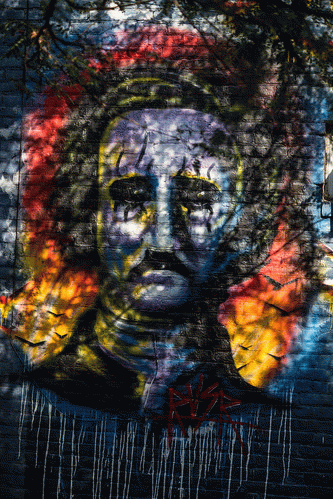This piece was reprinted by OpEd News with permission or license. It may not be reproduced in any form without permission or license from the source.
Published from Rising Tide Foundation
What did Poe mean when he wrote "But in all ages the great obstacles to advancement in Art have been opposed by the so-called men of science."? If you are not certain of the answers to these questions, keep them in mind as we go further and I will address them---
What say of it? what say CONSCIENCE grim, T hat spectre in my path?
-Chamberlain's Pharronida
This is a transcript of a lecture given at an RTF Symposium titled "The Edgar Poe You Never Knew"
The purpose of this paper is to debunk the myth surrounding Poe; that he was just a mere writer of horror and that he had an unhealthy obsession with the mad and the morbid--- since isn't that all he ever wrote about?
Not only is Poe associated with the mad but many think he must have been mad himself, since in order to portray madness with such depth of understanding, it is commonly thought that one must partake in that very thing. Further claims conclude that Poe was an alcoholic and gambler, thus sharing in the qualities of many of the characters he chose to write about. Therefore, the narrative has been that while Poe was a gifted and intelligent writer, he was also deeply disturbed, and that his stories reflected the inner turmoil and conflict he suffered within himself against the demons that he was so evidently battling. Thus, reading his stories of horror are entertaining displays and insights into madness, but at best, are an interesting study of psychology into the criminally insane. Otherwise, there is no other worth or value to be found in them, and for the majority of his readership, Poe's short stories are rather likened to a dark desert that is to be voraciously consumed.
Well, I disagree. In this paper I will present a rebuttal to these popular opinions about Poe, that what seems to be Poe's unhealthy obsession with the criminally insane is in fact an intervention into the mind of his readership. What many of us have been guilty of when attempting to describe Poe, is the failure to ask ourselves the questions: "Well, why do we find his stories fascinating and entertaining? What draws us to the supposed horror?" Many of the characters developed in his stories, despite having done terrible acts, have often a degree of relatability when their inner thoughts are shared with us. Is he trying to humanise the diabolic and make us feel sympathy for its crimes? Or is he revealing a part of ourselves that we were not fully conscious of beforehand, and that we MUST be conscious of in order to avoid our own self destruction?
Mellonta Tauta
Before I go into an investigation of one Poe's most famous short "horror" stories, I wanted to quickly discuss with you the last essay Poe wrote at the end of his life titled Eureka, of which Mellonta Tauta was published as a stand-alone segment in 1849. In this short story the narrator is speaking from the future (April 1, 2848 to be exact). The narrator goes on in a letter he is writing to a friend how history (basically the time of Poe) compares with that of the future (or present time of the narrator). In his letter, he compares various things from the past and future and what he thinks of them. Sometimes he expresses a conclusion we can agree with and others times not, the reader must decide for themselves what to do with this.
In one of the sections which I want to go over with you in detail, the narrator brings up two methods of investigation; a priori (deductive) and a posteriori (inductive) thinking.
-- the first aeronaut, maintained the practicability of traversing the atmosphere in all directions-- he was scarcely hearkened to at all by his contemporaries, who looked upon him as merely an ingenious sort of madman, because the philosophers(!) of the day declared the thing impossible.
Really now it does seem to me quite unaccountable how any thing so obviously feasible could have escaped the sagacity of the ancient savans. But in all ages the great obstacles to advancement in Art have been opposed by the so-called men of science. To be sure, our men of science are not quite so bigoted as those of old: ---oh, I have something so queer to tell you on this topic.
Next Page 1 | 2 | 3 | 4 | 5 | 6
(Note: You can view every article as one long page if you sign up as an Advocate Member, or higher).






